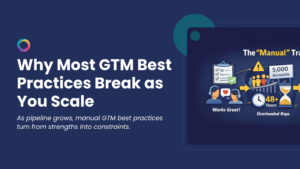You’ve heard the term, your competitors are using it, but what’s stopping you from jumping on to the marketing automation bandwagon?
Ok, we understand you might not know much about it, or you don’t know how your business would benefit from it. Well if you’re using inbound marketing to generate leads in 2019, which we can’t understand why you wouldn’t be, then we’ll tell you why you need to be using marketing automation as well.
Keep reading to find out why…
What is inbound marketing?
Inbound marketing is about creating relationships and valuable experiences that feel natural and organic to the consumer. You attract prospects into your buyer’s funnel, with relevant and helpful content that will answer their problems. Once you have attracted them, you engage with them via landing pages, pop-ups and web forms that they will want to interact with. You create open conversations and build trust and credibility through your interactions and offerings. Finally, you delight them with a solution to their problem and turn them into loyal advocates of your brand.
When it’s condensed into one paragraph like that, it sounds natural and straight forward. Sometimes it can be, sometimes it’s a little trickier, especially if you’re in the B2B market, or use a longer sales cycle.
Typically, it covers three main areas, Attract, Engage, and Delight, however, there are lots of different funnels to suit various business needs.
You could have a lot of different target audiences, who all use various marketing channels, which means you have to create lots of different campaigns to get in front of them. Don’t be alarmed, there is a solution that can help you work smarter, and save you a lot of time, effort and money. It’s called marketing automation.
What is marketing automation?
Marketing automation is the overall term used to describe all the digital marketing functions that we can automate in 2019. It is a way to centralize marketing actions like social posts, email marketing and personalization. It also gives us the ability to track and measure every digital click and find out what’s working well in real-time.
It’s a tactical approach to content distribution that helps lead generation, lead nurturing and community building in a centralized location.
Different types of inbound marketing tools
Ads
Ads always have and will continue, to work exceptionally well. However, consumers are becoming much more resilient to them. With 47% of internet users globally using an ad-blocker today, you need to think of new ways to get in front of your target audience.
Consumers are viewing paid media differently, so you need to be aware of what advertising tactics to use in 2019.
Almost three-quarters of people dislike pop-up ads, and a further 72% said they would have a lower opinion of a brand if they subjected them to a pop-up ad.
Our top tip is to try video advertising, as more and more people are looking for, and don’t mind video ads as much. Video content is prioritized on social media and will get in front of your target audience in a much more organic way.
Content Strategy
Traditional marketing is becoming less and less effective by the minute; as a forward-thinking marketer, you know there must be a better way. Instead of pitching your products or services, you should aim to provide truly relevant and useful content to your prospects and customers to help them solve their issues.
Did you know that almost half (47%) of buyers viewed 3-5 pieces of content before engaging with a sales rep? This will give you an idea of how relevant your content is. You must ensure that all your content is mapped out in line with your buyer’s funnel.
Marketing automation platforms, like Zymplify, will allow you to see where your content falls in alignment with your buyer’s funnel and your buyer personas.
Video content, like video ads, is a fantastic way to get in front of your buyer persona in a much more natural way. Having a video thumbnail in the search results can double your search traffic, according to Search Engine Journal, 2018. Also, video drives a 157% increase in organic traffic from SERPs, so it’s vital that you include it in your overall content strategy.
Social Media
There are lots of ways in which you can use social media to your advantage, which we have already discussed in this guide. Here are a few examples that you can promote on your social media to aid your overall inbound marketing strategy.
With about 3.03 billion people on social media around the globe, it’s critical that you know where your target audience is hanging out online, and you get in front of them.
However, with so many social media channels to use, it can be overwhelming and seem unrealistic to get on to all of them. First things first, you don’t need to have a strong presence on all of them – you just need to be where your target audience is.
Social media scheduling will give you the ability to schedule social posts in advance, and save yourself time, effort and money in the long run.
Email marketing
Email marketing is still an incredibly useful tool that inbound marketers use every day to generate leads and convert prospects into customers. However, you do need to adapt your email marketing strategy and bring it up to date. It can be incredibly time-consuming if you have different lists and are sending out manual email sends.
The ability to segment email lists and individualize email campaign messaging are the most effective personalization tactics for 51% and 50% of marketing influences, respectively.
Marketing automation will give you back control, allow you to segment and personalize your email marketing to optimize your efforts. You will be able to set up a strategic journey and send out a series of emails depending on the previous actions.
How marketing automation can help your inbound marketing strategy
By using marketing automation within your inbound marketing strategy, you’re able to map the customer experience and use personalized content to push your leads further down the funnel.
According to MarTech Today, spending on marketing automation tools is expected to reach $25.1 billion annually by 2023, with 79% of top-performing companies using it for three years or more.
Companies that automate lead management see a 10% or more bump in revenue in 6.9 months, according to Strategic IC.
Top tips for automation and inbound marketing
- Build don’t buy an email list.
- Start simple, get used to the platform, and scale up over time.
- Keep your team focused on the overall goal of the automated campaign. Are you generating leads? Trying to increase brand awareness? Whatever the end goal is, ensure everyone is working towards the same purpose.
- Be creative, personal and think outside the box with your content.
- Work with your sales team and use their expert advice when creating content and email marketing materials.
- Remember that you are still a human and people like to be talked to as humans – don’t let the robots take over.
- Use strategic automated journeys to not only generate leads but to nurture them through your buyer’s funnel until they are passed over to the sales team.
- Segment your email list accordingly and talk to them differently.
- Create highly targeted, valuable and relevant content and send it out at the right stages of the buyer’s funnel.
- Spend some time researching what your competitors are doing and create better content. Use this content at every step of the inbound marketing process.
Conclusion
Inbound marketing can seem straightforward, but there is a lot to it, and unless you have the time or resources to facilitate the essential operation, then you need to use marketing automation. It will allow you to use your time much more productively and get back to other important marketing tasks.
Marketing automation has a massive scope of capabilities, that will allow you to control, execute and measure all your digital marketing efforts. If you’d like to know more about marketing automation, and what Zymplify can do for your business, get in touch today.
More from Zymplify
Top Inbound Marketing Tools to use in 2019
Inbound Marketing and Marketing Automation
The Power of Inbound Marketing: Are You Really Using it Effectively?




